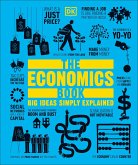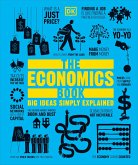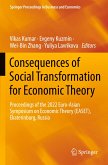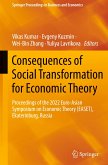This textbook provides a comprehensive and unique introduction to modern microeconomics. It adopts an integrative approach, positioning the main findings of economics in a broader context. It critically reflects on theories from a philosophical standpoint and compares them to approaches found in the social sciences, while at the same time highlighting the implications for the design of legal systems and business practices.
Intended for undergraduate students, the book presents brief examples and comprehensive case studies to help them grasp the real-world implications of the theories. As such, it is suitable for an applied, yet technically precise approach to teaching microeconomics, as well as for a critical review of the economic mainstream. Starting from the question as to why and how societies organize economic activity, it analyzes the potential and limitations of various types of market with regard to alleviating scarcity and achieving distributive objectives, from an institutional perspective.
This second edition systematically expands on decision theory by including chapters on traditional decision theory under risk and uncertainty, and on behavioral economics, as well as a chapter presenting findings from the neurosciences, evolutionary psychology, and narrative psychology. Furthermore, there are theoretical additions, along with updated case studies and examples - from trade wars to pandemics and the climate crisis.
A new edition of the companion workbook features a wealth of exercises, ranging from basic multiple-choice questions to challenging mathematical problems and case studies, is also available.
Intended for undergraduate students, the book presents brief examples and comprehensive case studies to help them grasp the real-world implications of the theories. As such, it is suitable for an applied, yet technically precise approach to teaching microeconomics, as well as for a critical review of the economic mainstream. Starting from the question as to why and how societies organize economic activity, it analyzes the potential and limitations of various types of market with regard to alleviating scarcity and achieving distributive objectives, from an institutional perspective.
This second edition systematically expands on decision theory by including chapters on traditional decision theory under risk and uncertainty, and on behavioral economics, as well as a chapter presenting findings from the neurosciences, evolutionary psychology, and narrative psychology. Furthermore, there are theoretical additions, along with updated case studies and examples - from trade wars to pandemics and the climate crisis.
A new edition of the companion workbook features a wealth of exercises, ranging from basic multiple-choice questions to challenging mathematical problems and case studies, is also available.








